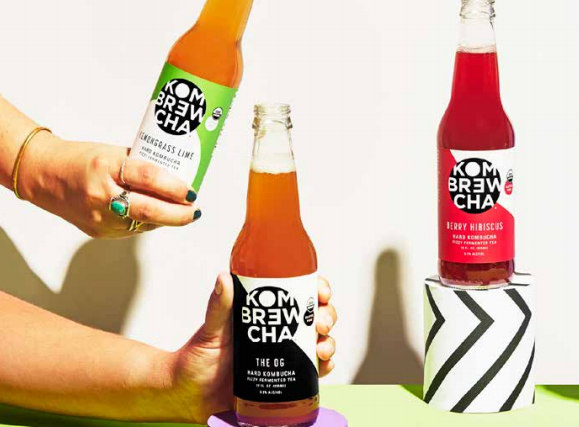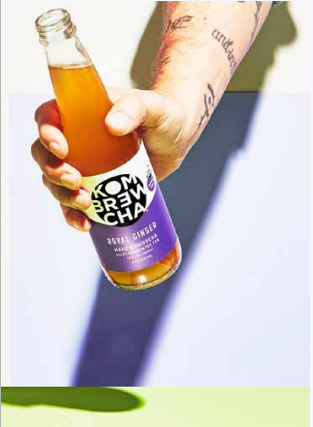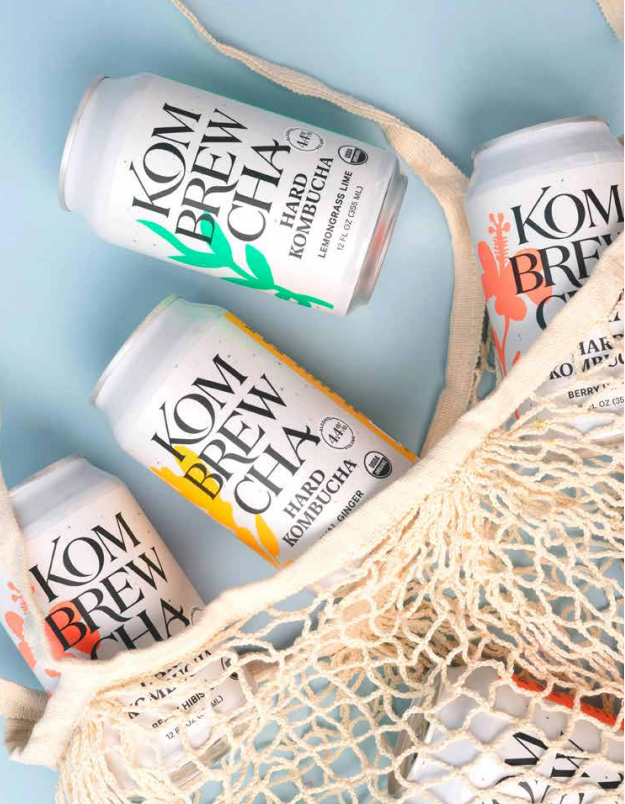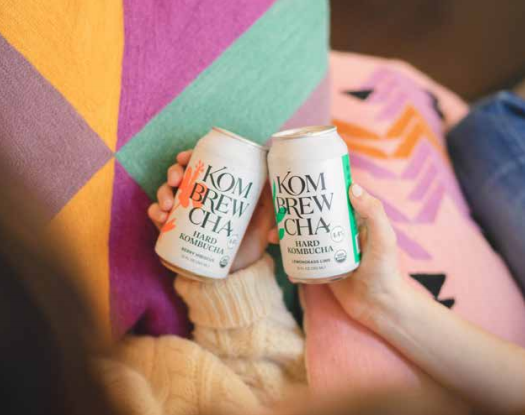
The beverage has been boasting a huge and stable consumer base, which coincides with the sudden slowdown of non-alcoholic beverage growth over the past two years. Non-alcoholic beverages sales went up only 1.2% in 2017. The driven force being natural and organic beverages, which was +10.8% to $6.4 billion, and specialty and wellness beverages which was +1.7% to $25.2 billion. In contrast, traditional beverages rose just 0.1% to $54.6 billion. Commenting on this, SPINS Director of Sales, Bobbi Leahy said: “Consumers are influencing the market with their behaviour. Statistics show that all the growth came from natural and specialty products, which has gained more space as interest shifts from traditional products.” Modern life, with its quick pace and high pressure, is pushing the demand for convenient yet healthy beverages. With the development of social productivity and income level constantly rising, consumers are no longer satisfied with a single food that can provide merely taste and calories. The buzzword ‘natural’ has become a key criteria in choosing a beverage. Our modern society is looking for health benefits in what they drink. There is no standard for ‘natural and health benefits’ and everyone has their own interpretation. However, most consumers tend to assume that this means the beverages contain natural ingredients and traditional brewing techniques. This is why the popularity of kombucha in the western market skyrocketed immediately after it appeared.
What is Kombucha?
Kombucha is a fermented tea. The first step in the kombucha making process is to brew some tea, preferably black or green, then the tea is fermented with a kombucha culture that is commonly known as a ‘SCOBY’ (symbiotic culture of bacteria and yeast). Finally, a beverage rich in organic acids, active enzymes, amino acids, and vitamins B3 and B12 is created; a drink which is beneficial to human intestinal health and has a strong fermentation flavour. Some kombucha brands also add herbs and adaptogens such as reishi and ashwaganda, botanicals, fruit juice concentrates, and other ingredients before or after the fermentation.
Interestingly, although regarded as sensational by the Western world, kombucha traditionally originates from China. There was a brief period in the 1980s where the drink was popular in China, and people mostly made it at home by adding culture and sugar into black tea. However, these drinks could easily become contaminated while making them at home, so the industrial production of it never happened. Improved technology came later to make it possible, and the unique taste and the health benefits of kombucha has made it the new trend in the Western market.

Fermentation and Kombucha on Fire
According to SPINS, retail sales of kombucha and other fermented beverages shot up 37% to $556 million in 2017 in the US. This number did not include data from retailers such as Costco and Whole Foods, which means the total retail sales are likely to be significantly higher. In addition, Euromonitor International has predicted that US retail sales of kombucha is expected to reach $656.7 million in 2019.
Driven by factors such as product innovation and consumer health awareness, the overall rapid growth of fermented beverages echos the fact that the top brands are achieving great success. From June 2016 to June 2017, more than 8% of the new iced tea products released worldwide were kombucha. Compared with five years ago, this has increased by approximately 60%. KeVita is a kombucha brand that is rich in active probiotics, organic acids, and organic caffeine. Humm is another that contains light bubbles and is rich in vitamin B, antioxidants, amino acids and probiotics, and tastes unique. The brand Health-Ade highlights its unique taste, traditional production methods, organic positioning and high-end glass bottle packaging, and has steadily occupied the high-end market. In addition, Rowdy Mermaid not only focuses on probiotics, but also adds unique herbal plants. KeVita, Health Ade, and other fast- growing natural beverage brands have achieved double- digit growth in the past two years, and new brands such as Suja, Remedy, and Kombrewcha have been popping up frequently on the market.
Speaking of market, the market share of kombucha has even increased in specific areas of the world. For example, kombucha sales are strongest in the West Coast of North America and Australia which respectively accounted for 20% and 30% and up. In addition, although Europe is not a traditional consumer market, kombucha is also very popular in the UK. Kombrewcha chose to include alcohol in their kombucha and sell it as a new “Kombrewcha” drink. It is essentially a healthy take on beer and provides a new choice for consumers.

Kombucha’s Challenges: Points of Tension
However, there are still many disputes on this famous drink. On the topics of production technology, raw material use, nutrient composition, and quality standard, there are intense debates within the industry as to what exactly “authentic” kombucha is, and who should decide, for that matter.
Some companies boast about the fact that their kombucha is raw and unprocessed. Others heat pasteurize their products in part to create a consistent product or distill off some alcohol after the fermentation. Others use coffee and other non-tea products as a base, as well as tea powders and concentrates. What should not be considered “kombucha” versus a “kombucha beverage” ?
Despite all the disputes in the industry, one thing all stakeholders are clear about is that they do not want regulators to come to define the category. Rather, they want the industry to come to a consensus so that it can build a united front to the FDA. Kombucha Brewers International (KBI) is the non-profit association consisting of kombucha manufacturers, brands, equipment makers, and ingredient suppliers. It has been engaging with members to develop a working definition of kombucha. Many members want kombucha defined as an “unpasteurized, raw, microbiologically active tea fermented with a SCOBY”, but there has not yet been a definition that everyone is happy with.
Disputes on Alcohol Level
Because of their fermentation time, temperature, flavouring agents and other factors, kombucha contains micro levels of alcohol as well. A law was passed putting 0.5% ABV in place. Once above 0.5% ABV, kombucha is classified as an alcoholic beverage and is taxed accordingly. In recent years, several kombucha companies have been involved in the legal whirlpool due to their products containing too much alcohol.
Facing the growing pains in the industry over the alcohol issue, the KBI has been working to develop better ethanol testing methods. The KBI has been lobbying members of Congress to back a bill (the Kombucha Act) that would raise the threshold to 1.25% but hasn’t succeeded yet. Some firms use micro-filtration techniques to filter out some yeast to prevent the products from continuing to ferment in the bottle and thus increasing the alcohol content. Some brands use flavour-enhancing additives so that raw materials do not participate in fermentation. These methods can control the alcohol content and flavour of products to a certain extent. Rowdy Mermaid has applied for a patent for this development, ensuring that the alcohol will be controlled below 0.3% during the whole production process. Kombrewcha, owned by AB InBev, chose to absorb the alcohol dilemma and sell it as a new kombrewcha drink, with 3.2% alcohol, providing a new choice for consumers.

Is Heat the Enemy?
The sugar levels have also been found to differ in the drink from what is stated on the packaging due to the active culture in kombucha. Therefore, heat treatment is not necessarily the enemy that some purists claim. Research has shown that if you heat the kombucha up to around 130 ℉ for 30 seconds, you can selectively remove 99% of the yeast without damaging the beneficial bacteria you might want to keep in the product. However, KBI co-founder Hannah Crum believes that killing off yeast is not favoured even if bacteria is not impacted. The yeast contain nutrition in their living form, notably B vitamins, so using heat to kill off the yeast also impacts the nutritional profile of the product.
Despite the many challenges in the kombucha industry, there is also plenty of opportunity. Whether it is fermentation, storage and transportation technology, and innovation in the beverage industry, there is always room for development. One of the biggest keys to market competition in the industry is whether a brand can find and adhere to its own uniqueness. With the continuous growth of consumption, the segmentation of the consumer market will become increasingly obvious. Individualized and diversified consumption will become the mainstream of current consumption growth, and will also promote the diversified growth of the beverage industry. Heat treatment of food is a method of expressing the purpose of disinfection without compromising the quality of food.
Speaking of the future of kombucha and other fermented beverages, Crum showed her optimism. She stated, “I saw a lot of the same arguments going on in the early days of the craft beer industry, where you would get a vocal minority rejecting everything that the big brands were doing. The rejection has become an original sin of big brands while in fact they were doing very well in all aspects.”









NO COMMENT